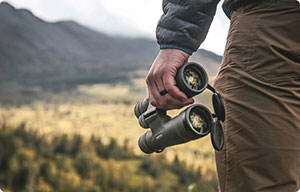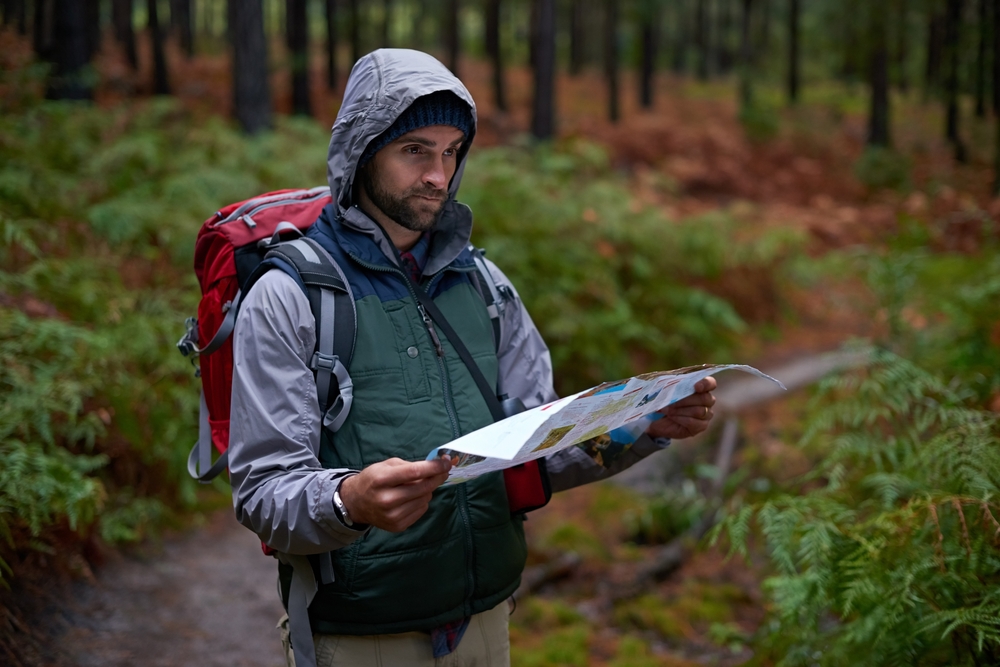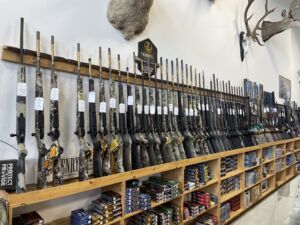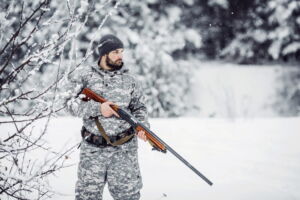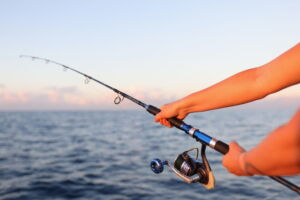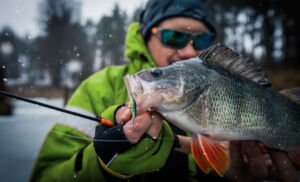Alberta, a province blessed with an incredible array of landscapes, from the iconic Rocky Mountains to vast boreal forests and expansive prairies, offers unparalleled opportunities for outdoor enthusiasts. For many, the best way to truly immerse oneself in this natural beauty is by camping. Whether you’re a seasoned backcountry explorer or looking for a comfortable family getaway, this comprehensive Alberta Camping Guide will help you navigate the options, prepare effectively, and make the most of your adventure under the vast Alberta sky.
Table of Contents
Why Alberta is a Camper’s Paradise
Alberta’s diverse geography translates into a remarkable variety of camping experiences. Imagine waking up to the majestic peaks of the Canadian Rockies, the serene sounds of a forest awakening, or the gentle quiet of the prairies under a blanket of stars. The province boasts a well-developed network of campgrounds, from fully serviced sites with all the amenities to remote, rustic wilderness areas. Beyond the stunning scenery, Alberta’s commitment to maintaining its natural spaces means campers can enjoy clean facilities, well-marked trails, and abundant wildlife viewing opportunities, making it a truly exceptional destination for outdoor living.
Types of Camping in Alberta
Alberta offers a huge variety of camping experiences, catering to nearly everyone’s preferred level of comfort and adventure. Understanding the different types available will help you choose the perfect setting for your trip.
Front-Country Camping (Campgrounds)
This is perhaps the most popular form of camping, ideal for families, first-timers, or those who prefer more amenities.
- Serviced Sites: Often found in Provincial Parks and National Parks, these sites typically offer electrical hook-ups, water, and sometimes sewer connections. They usually include a picnic table and fire pit. Amenities can include flush toilets, showers, playgrounds, and even laundromats. These are great for RVs, trailers, and comfortable tenting.
- Unserviced Sites: These sites still provide a designated spot with a picnic table and fire pit but lack power or water hook-ups at the site. Amenities might include pit toilets and shared water pumps. They offer a more traditional camping experience while still being accessible by vehicle.
- Group Campsites: Designed for larger gatherings, these sites can often accommodate multiple RVs or tents and provide shared facilities. They are perfect for family reunions or large friend groups.
- Comfort Camping (Glamping): A growing trend, many parks now offer pre-set canvas tents, yurts, or cabins that come with beds and basic furnishings. This is a fantastic option for those who want the outdoor experience without owning all the gear or the hassle of set-up.
Back-Country Camping
For the adventurous and self-sufficient, back-country camping offers true wilderness immersion.
- Designated Back-Country Sites: Many Provincial and National Parks have established back-country campgrounds accessible only by hiking, paddling, or horseback riding. These often have basic amenities like pit toilets and designated tent pads, and sometimes bear caches. Permits are always required.
- Crown Land Camping: In vast areas of Alberta’s Public Land Use Zones (PLUZs) and certain Crown Lands, “random camping” is permitted. This means you can set up camp virtually anywhere, provided you adhere to specific rules regarding distance from water bodies, roads, and other users, and practice Leave No Trace principles rigorously. No services are provided, and you are entirely self-sufficient. This offers the ultimate solitude but requires extensive preparation and knowledge.
Rustic and Off-Grid Camping
- OHV-Accessible Sites: Some areas are specifically designated for Off-Highway Vehicle users, providing remote camping spots accessible by ATV or dirt bike.
- First Come, First Served (FCFS) Sites: Many smaller, often rustic, campgrounds operate on an FCFS basis, meaning no reservations are accepted. These can be great for spontaneous trips but might fill up quickly during peak season.
Navigating Reservations and Permits
Planning your camping trip in Alberta often starts with securing your spot, especially during peak season (June to September).
Provincial Parks (Alberta Parks)
- Reservations: The Alberta Parks reservation system is highly utilized. For popular campgrounds and long weekends, sites can book up within minutes of the reservation window opening (often 90 days in advance). It’s crucial to be online and ready at the exact time.
- First Come, First Served: A limited number of sites in some campgrounds, and many smaller, more rustic sites, operate on a FCFS basis. Arriving early in the week or early in the day is your best bet for these.
- Fees: Vary by campground type and services offered. Be aware of additional fees for extra vehicles or firewood.
National Parks (Parks Canada)
- Reservations: Similar to Provincial Parks, National Parks like Banff, Jasper, Waterton Lakes, and Elk Island have their own reservation systems (Parks Canada Reservation Service) and are highly competitive. Booking well in advance (often up to a year for popular sites) is often required..
- Random Camping Permits: For back-country areas within National Parks, you’ll need specific back-country permits, which can often be reserved online or obtained in person at park visitor centers. These are crucial for safety and to manage impact.pa
Public Land Use Zones (PLUZs) & Crown Land
- Random Camping: Generally, no specific reservation or permit is required for random camping on most Crown Land or within PLUZs, provided you follow the regulations. However, some areas or activities (like large groups or commercial operations) may require specific permissions.
- Public Lands Camping Pass: As of June 1, 2021, a Public Lands Camping Pass is required for random camping on public land along the eastern slopes of the Rocky Mountains (specifically in the PLUZs). This pass helps fund management and conservation efforts in these popular areas. Ensure you check if your desired random camping spot falls within the pass zone.
Essential Gear for Your Alberta Camping Adventure
Having the right equipment is important for comfort, safety, and enjoyment, regardless of your chosen camping style. For help finding the right gear for your camping adventure, be sure to shop Storm Mountain Outfitters online or in store.
Shelter
- Tent: Choose a tent appropriate for the number of people, weather conditions, and type of camping. Look for waterproofness, sturdy poles, and good ventilation.
- Sleeping Bag: Rated for the lowest temperatures you expect. Even in summer, nights can be cool in Alberta, especially at higher elevations.
- Sleeping Pad: Essential for insulation from the ground and comfort. Options range from basic foam pads to inflatable mattresses.
- Pillows: Inflatable camping pillows or stuff sacks filled with clothes.
Cooking and Food Storage
- Camp Stove: Portable propane or liquid fuel stove for cooking.
- Cookware: Pots, pans, utensils, plates, and mugs.
- Cooler: A good quality cooler to keep food cold, especially if you don’t have electricity.
- Water Container/Filter: Access to potable water varies. Bring enough or have a reliable filter/purifier for back-country.
- Food Storage (Bear-Proof): Crucial in bear country. Use bear-resistant containers, hang food from trees (in approved areas), or store in a vehicle’s hard-sided trunk. Never leave food unattended or in your tent.
Clothing and Personal Items
- Layered Clothing: Alberta weather is variable. Pack layers for warmth, rain, and sun protection. Include a warm hat, gloves, and waterproof outerwear.
- Sturdy Footwear: Hiking boots or durable shoes appropriate for the terrain.
- First-Aid Kit: Comprehensive and easily accessible.
- Toiletries: Biodegradable soap, toothbrush, etc.
- Headlamp/Flashlight: With extra batteries.
- Sun Protection: Sunscreen, sunglasses, wide-brimmed hat.
- Insect Repellent: Mosquitoes and other biting insects can be prevalent, especially near water.
Navigation and Safety
- Maps and Compass/GPS: Even in campgrounds, knowing your way around trails is important. For back-country, these are essential.
- Bear Spray: Absolutely critical when camping anywhere in Alberta where bears might be present. Know how to use it safely and effectively.
- Whistle: For signaling in emergencies.
- Fire Starter: Lighter, matches, or ferro rod.
- Multi-tool/Knife: Always useful.
- Emergency Blanket/Shelter: For unexpected situations.
Camp Comfort and Extras
- Camp Chairs/Table: For comfort around the fire.
- Firewood: Purchase locally to prevent the spread of pests, or collect deadfall where permitted.
- Trash Bags: Pack out everything you pack in!
- Entertainment: Books, games, cards, camera.
Safety First: Staying Safe While Camping
Safety is the most important part of any adventure. Follow these tips for an enjoyable and worry-free camping trip in Alberta.
Wildlife Safety
- Bears: Alberta is bear country (both black bears and grizzlies).
- Secure Food & Attractants: Store all food, cooking gear, and scented items (like toiletries) in bear-resistant containers, hung from a bear pole/cache, or in a hard-sided vehicle. Never in your tent.
- Make Noise: When hiking or moving through dense brush, make noise to avoid surprising a bear.
- Carry Bear Spray: Know how to use it.
- Research: Understand bear behavior and what to do in an encounter (e.g., stand your ground with grizzlies, fight back with black bears in a predatory attack).
- Cougars: Less common to encounter but be aware. Don’t hike alone, keep children close.
- Other Animals: Be mindful of moose, elk, coyotes, and smaller critters like rodents (which can chew through gear).
Fire Safety
- Fire Bans: Always check for fire bans before starting a campfire. Conditions can change rapidly. Respect any restrictions.
- Attend Your Fire: Never leave a campfire unattended.
- Extinguish Thoroughly: Douse your fire with water, stir the ashes, and douse again until it’s cold to the touch.
- Fire Pits: Use only designated fire pits.
Environmental Hazards
- Weather: Alberta’s weather is notorious for changing dramtically with little notice. Be prepared for sudden temperature drops, rain, snow (even in summer at higher elevations), and thunderstorms.
- Hypothermia: A significant risk if not properly dressed and prepared for cold and wet conditions.
- Water Safety: Be cautious around rivers and lakes. Swift currents can be dangerous.
- Navigation: It’s easy to get disoriented, especially in dense forests or unfamiliar terrain. Always carry maps, a compass, or a GPS and know how to use them. Tell someone your plans.
Personal Safety
- First Aid: Know basic first aid and carry a well-stocked kit.
- Communicate: Inform someone of your camping location and expected return time, especially for back-country trips.
- Stay Hydrated: Drink plenty of water, even if it’s cool.
- Sun Exposure: Protect yourself from the sun.
Leave No Trace Principles: Protecting Alberta’s Wilderness
As campers, we are temporary visitors in Alberta’s wild spaces. Practicing Leave No Trace principles is essential to minimize our impact and preserve these environments for future generations.
- Plan Ahead and Prepare: Research your destination, regulations, and potential hazards. Pack appropriate gear.
- Travel and Camp on Durable Surfaces: Stick to established trails and designated campsites. When random camping, choose durable surfaces like rock or dry grasses.
- Dispose of Waste Properly: Pack it in, pack it out. This includes all garbage, food scraps, and toilet paper. Bury human waste in a cathole 6-8 inches deep and at least 200 feet from water, trails, and camp.
- Leave What You Find: Do not disturb natural objects, historical artifacts, or cultural sites. Leave plants, rocks, and other natural objects as you find them.
- Minimize Campfire Impacts: Use established fire rings. Keep fires small. Burn all wood and coals to ash. Scatter cool ashes. Consider a stove for cooking to minimize fire impact.
- Respect Wildlife: Observe wildlife from a distance. Never approach or feed animals. Store food and garbage securely.
- Be Considerate of Other Visitors: Respect their experience. Keep noise levels down.
Enhancing Your Alberta Camping Experience
Going beyond the basics, there are many ways to enrich your camping trip in Alberta.
Activities to Enjoy
- Hiking and Backpacking: Alberta boasts an extensive network of trails, from easy walks to challenging multi-day treks.
- Paddling: Kayaking, canoeing, and stand-up paddleboarding on lakes and rivers.
- Fishing: Acquire an Alberta fishing license and try your hand at catching trout, pike, or walleye. Be sure to review Alberta’s Sportfishing Regulations for more information on fishing in Alberta and information on the lakes and species the province has to offer..
- Wildlife Viewing: Bring binoculars and a camera to spot local fauna.
- Stargazing: Away from city lights, Alberta’s night sky can be truly spectacular.
- Photography: Capture the stunning landscapes and wildlife.
Local Amenities and Attractions
Many campgrounds are located near towns or attractions.
- Visitor Information Centers: Stop here for local maps, trail conditions, and advice.
- Local Businesses: Support small towns by purchasing supplies, dining out, or visiting local shops.
- Museums and Interpretive Centers: Learn about the area’s natural and cultural history.
Making Lasting Memories: Your Alberta Camping Guide
Camping in Alberta offers an unparalleled opportunity to disconnect from the everyday and reconnect with nature. From the serene solitude of a back-country site to the communal warmth of a front-country campground, each experience promises unique adventures. By understanding the different camping options, diligently preparing your gear, prioritizing safety, and committing to Leave No Trace principles, you’re not just planning a trip; you’re crafting an unforgettable memory. So pack your bags, consult this Alberta Camping Guide, and get ready to discover the incredible beauty and tranquility that awaits you in Alberta’s wild heart. The crackle of a campfire, the scent of pine, and the vast expanse of the night sky are calling.
Need to stock up for your next camping adventure? Visit Storm Mountain Outfitters in Stettler, AB or contact us today for help with selecting your camping and safety gear.

